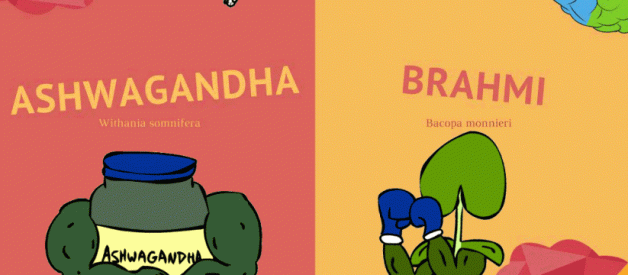If you ever find yourself rifling through the scientific and historical literature on Ashwagandha, get ready for some unexpected astonishment.
There really is just so much to be impressed by.
From its numerous health benefits, like supporting the immune system, treating anxiety, and relieving stress, to its foundational importance within Ayurvedic medicinal practices, (where ancient Hindu scholars wrote at length about the herbs curative powers); Ashwagandha is truly a gold standard nootropic herb.
Ashwagandha Overview
In Hindi, the term Ashwagandha is a combination of the words ashva (horse) and gandha (smell) ? the smell of a horse.
This fairly bizarre name was coined from the odor that Ashwagandha?s roots emit, which apparently smells somewhat horse-like.
Ashwagandha is an Adaptogen
A term that you will be running into A LOT if you spend any time researching ?relaxing herbs?.
In the most basic sense, an adaptogen is any non-subversive, non-toxic substance that stabilizes psychological processes or reduces stress and anxiety in some way.
The term is thrown around without any universal agreement on precisely what it means.
Many of the herbs covered in this post are considered adaptogens: Holy Basil, Maca, Ginseng, Rhodiola ? yet most affect completely different receptors and have very different chemical constituents.
Take Holy Basil (or Tulsi) for example:
There is evidence that Holy Basil lowers metabolic stress through blood glucose; whereas an herb like Maca lowers stress and maintains hormonal balance by acting on the endocrine system.
As I?m sure you know, these are VERY different functions that operate on very different bodily mechanisms, yet they?re thrown into the same adaptogen bucket.
Keep in mind:
Adaptogens vary greatly and many have different methods of functioning.
With that being said, a question that we often receive on social media is which adaptogen is ?better?? Ashwagandha or Brahmi? Ashwagandha or Ginseng? Should I purchase both? Can I take both at the same time? What is the best herb for anxiety?
These are all fair questions, yet they don?t have a definitive answer.
There is no one herb or adaptogen that is functionally better than any other, but there are herbs with more scientific backing for specific health problems than others.
And some of those health problems are obviously more important to get rid of than others (cancer vs hair loss for example).
So in this post, we outline the 5 most sought-after herbal attributes:
to find out which adaptogen is best for each.
So let?s get into it.
Ashwagandha?s main chemical constituents have been shown in studies to possess a large array of anti-oxidant and anti-inflammatory properties.
Especially Withaferin A, an alkaloid that seems to inhibit angiogenesis ? angiogenesis being the main mechanism behind tumors turning malignant.
Ashwagandha Vs Brahmi
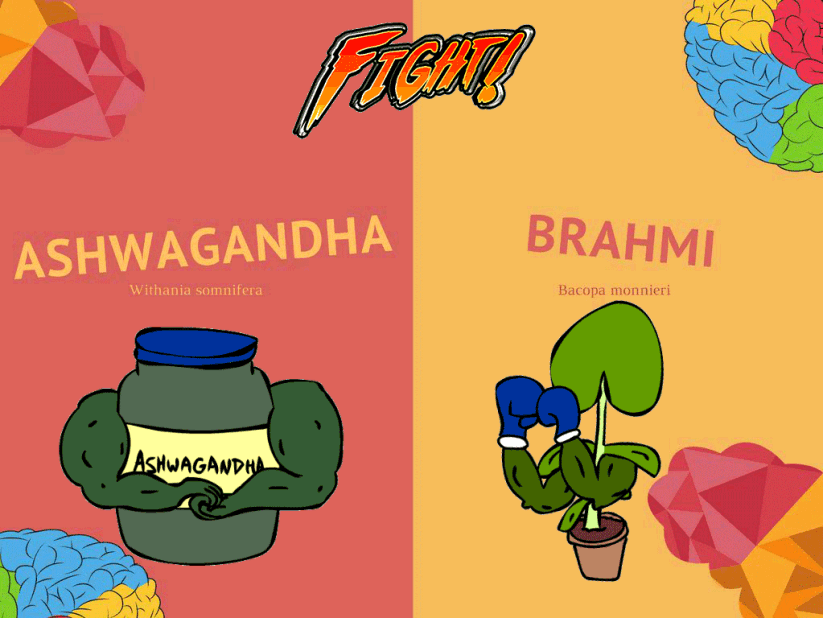
Much like Ashwagandha, Brahmi is used frequently in Ayurvedic medicine as a general tonic and a Rasayana ? which is a Sanskrit term that means the lengthening of lifespan.
Throughout the history of Ayurveda, Brahmi was used for a whole host of ailments: blood parasites, fevers, inflammation, joint pain, and skin problems, although, its most common use was as a nerve tonic.
The word Brahmi is an Ayurvedic one, used for two different but very similar herbs:
Bacopa monnieri: A shrub that grows in Southern India and therefore is referred to as Brahmi by natives.
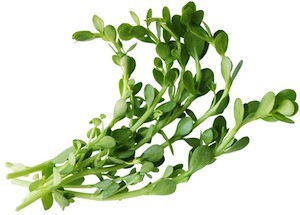
Centella asiatica: A perennial plant that grows in the wetlands of Asia; natives of Northern India call this herb Brahmi.
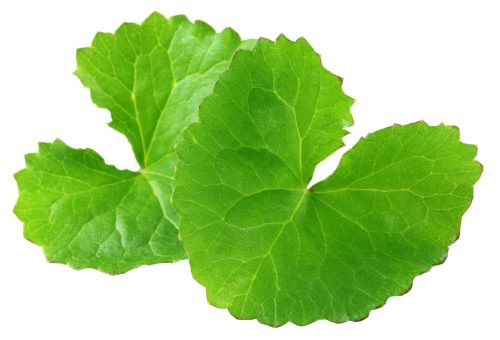
Just to muddy the waters a bit more, there is another name given to Centella asiatica by westerners: Gotu Kola.
So just keep in mind:
both Bacopa monnieri and Centella asiatica are considered Brahmi, and Gotu Kola is simply the western name that has been thrown into the vernacular.
Ayurvedic medicinal practitioners really hit a home run here.
Brahmi is beneficial across the board: Whether you?re looking for antioxidant, nootropic, anti-ulcer, anti-inflammatory, or anti-anxiety effects, Brahmi has you covered.

1.) Brahmi increases the activity of many endogenous antioxidant systems and directly lowers the amount of harmful free radicals in the body.
2.) Researchers have shown that administered Brahmi extract helps protect against DNA damage in both animal and human cells.
3.) Brahmi was also found to increase the activity of superoxide dismutase in rat brains ? significantly lowering overall stress.
Brahmi?s antioxidant chemical compounds include:


Both Luteolin and Cynaroside are powerful antioxidants that have been studied for their anti-tumor, anti-cancer, and anti-inflammatory effects.
Luteolin itself is such an effective antioxidant that it?s used frequently within the health community (especially the herbal health community) as a daily supplement.

1.) Those same antioxidant properties help the brain. An impressive study done in 2007 showed that Brahmi protects lipids and proteins from aluminum-induced oxidative stress in rabbits.
2.) Brahmi was also shown to mitigate the reduction of neurons in Alzheimer patients and increased the same patient?s scores at the Morris water maze test (a cognitive test).
Brahmi?s main neuroprotective compound:
Bacoside A has been shown to prevent oxidative damage induced by smoking and is also sold as an individual supplement for daily use.

1.) Brahmi has been shown to improve learning and memory in mice studies.
2.) Brahmi significantly improved working memory and spatial working memory accuracy in this double blind placebo study.
3.) Brahmi was shown to improve performance on 9 out of 17 memory tests over a 12-week span.
Brahmi?s main nootropic chemical compounds:


Both bacosides are responsible for the entirety of Brahmi?s cognitive improvements and have been individually studied and shown to improve overall mental retention capacity.

Inflammation is the immune system?s initial biological response to infections and irritation.
This response is strongly correlated with chronic diseases like diabetes, pulmonary disease, inflammatory bowel disease, and most cancers.
Luckily for us, there are MANY natural substances, especially within Ayurvedic medicine, which contain chemical compounds that help suppress inflammation and inhibit free radicals; Brahmi happens to be one of them.
1.) Brahmi was found to suppress multiple inflammatory reactions while showing no gastric irritation.
2.) Brahmi was also found to carry out an anti-inflammatory activity against carrageenan-induced paw edema in rat populations.
3.) Brahmi was found to inhibit the production of Cox-2, an enzyme known for creating harmful lipids (like Thromboxane) that increase the overall likely-hood of stroke or cancer; along with antimicrobial properties.
Brahmi?s anti-inflammatory chemical compounds include:


Although the entirety of Brahmi?s anti-inflammatory mechanisms aren?t entirely understood yet, most researchers believe that it?s the flavonoids along with Brahmi?s small amounts of betulic acid that do most of the heavy lifting.

1.) A 2001 study found that 300 MG of Brahmi daily, reduced anxiety in rat populations significantly over a 12 weeks span.
2.) Another study in 2013 found that participants who were administered Brahmi had overall lower levels of anxiety than the placebo group.
Ashwagandha and Brahmi
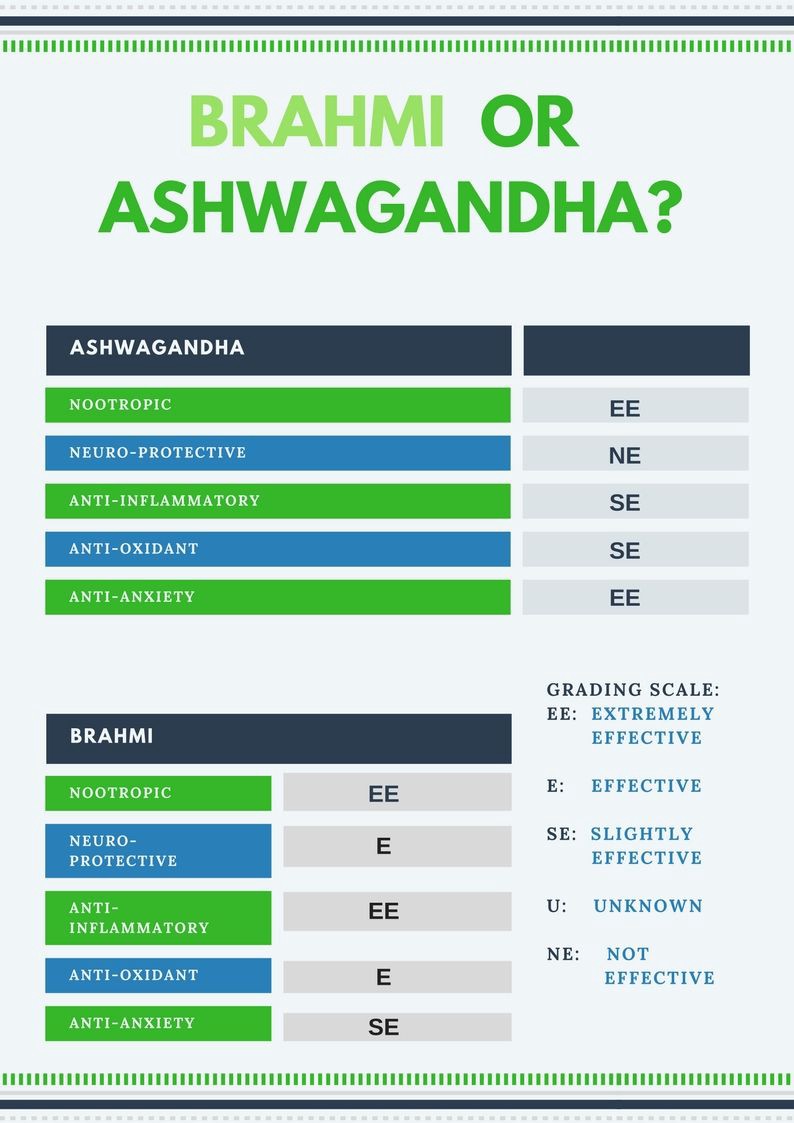
As the grading tool above suggests, the scientific literature of today tells us that Brahmi is a better neuroprotective, anti-oxidant, and anti-inflammatory agent; whereas Ashwagandha is much better for Anxiety (and depression) problems, along with being an arguably better cognitive enhancer.
Ashwagandha and Brahmi
Ashwagandha and Brahmi also work well together as a ?stack?.
In Ayurvedic medicine, practitioners will oftentimes recommend combining the duo if a patient isn?t feeling the desired effects of one.
The combination is entirely safe and has been used for hundreds of years.
Brand Awareness:
Understand that some supplement manufacturers are much better than others. When purchasing Ashwagandha, I?ve had luck with Nutraherbals and Banyan Botanicals (I?m in no way affiliated with them).
No matter who you buy from, always make sure to sift through the reviews ? especially the two and three-star reviews ? as some companies notoriously pay for five.
I can vouch for all brands listed below, as I?ve personally tried each one.
But of course, feel free to @herbexaminer me on twitter if you have a bad experience with a certain brand.
Ashwagandha VS Ginseng
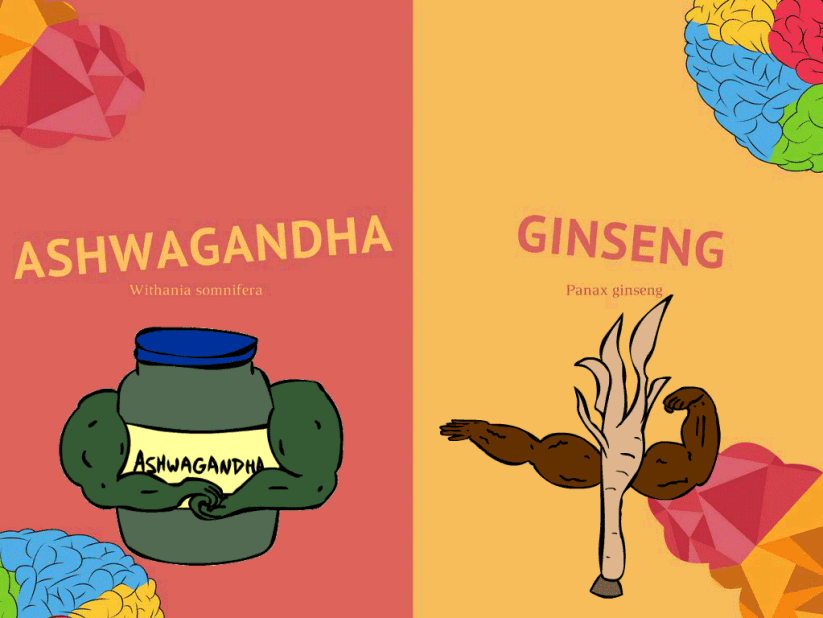
Few herbs have historical roots that dig as deep as Ginseng. Dating back to over five thousand years ago in Manchuria, China; Ginseng was considered a symbol of absolute harmony on planet earth and used extensively as one of the premier energy tonics within Chinese traditional medicine.
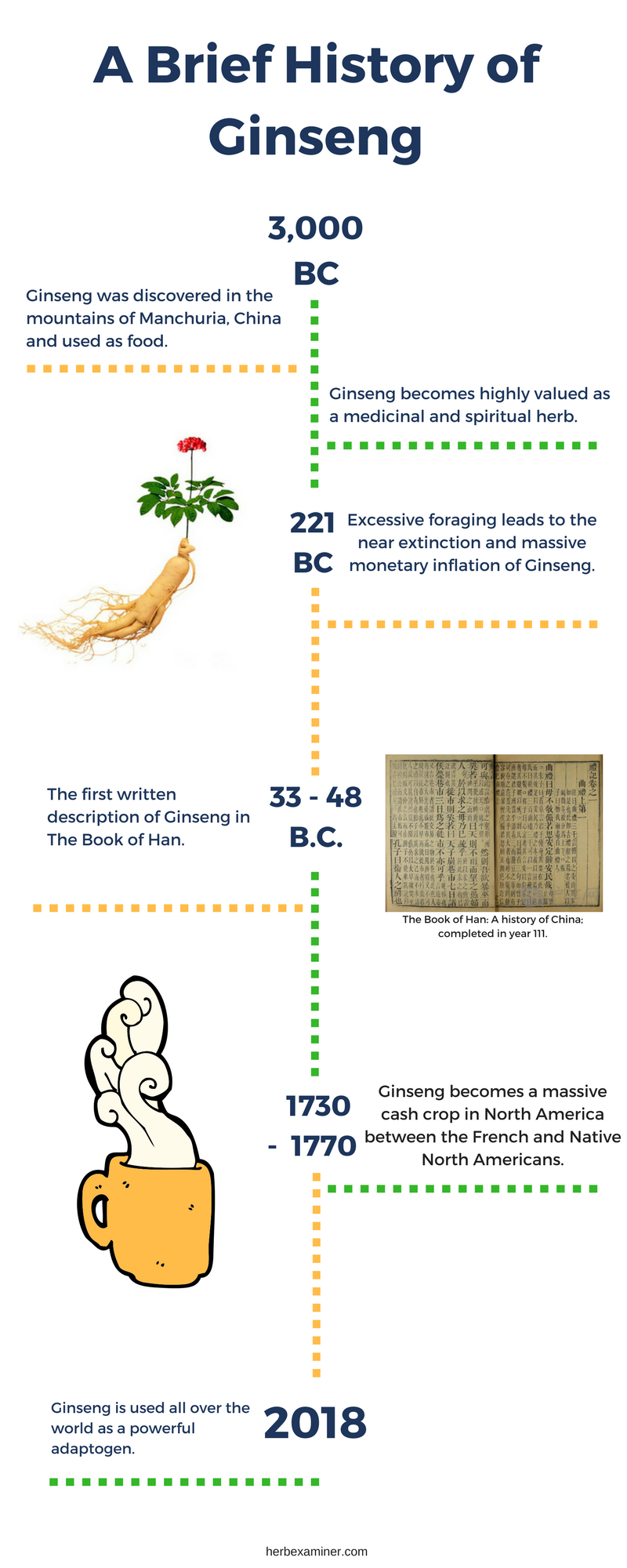
[For more information on Ginseng, we have a full analytical article on Ginseng VS Ginger and other powerful herbs].
There is tremendous confusion around which plants are and are not Ginseng. A good example is Eleutherococcus senticosus , a plant often referred to as Siberian Ginseng. The only problem? It?s not actually ginseng!
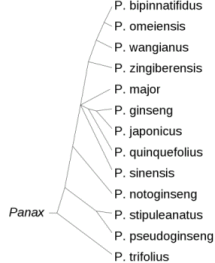
In order for an herb to be true Ginseng it must be from the genus ?Panax?. Herbs like P. japonicus (Japanese Ginseng), and Pseudostellaria heterophylla (Prince Ginseng), are also not ginseng.
NOT REAL GINSENG:
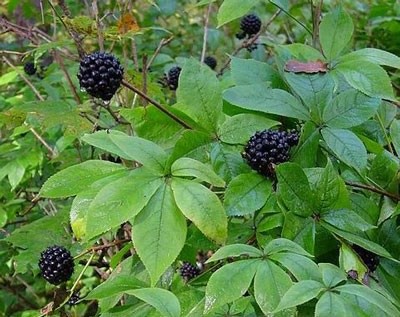 Siberian Ginseng
Siberian Ginseng
ACTUAL GINSENG ROOT:
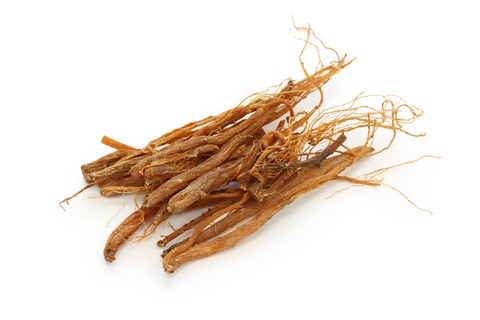 Panax ginseng
Panax ginseng
Ginseng Benefits
Ginseng is considered one of the most (monetarily) valuable herbs on earth ? in large part due to its medicinal benefits and spiritual history.

1.) There are two glands in the brain that control most of the stress regulation in your body, the pituitary gland, and the adrenal gland. Ginseng directly affects these glands through activation of the hypothalamo-pituitary-adrenal axis.
2.) Another study found that administration of ginseng to stressed mice lead to an overall significant anti-stress effect.
Ginseng?s main chemical compounds for stress regulation:


These Ginsenosides are Ginseng?s most prized chemical constituents and are mostly responsible for Ginseng?s adaptogenic functions.

1.) A study review published in 2012 found that the ginsenosides in Ginseng can increase nitric oxide production, increase blood circulation, and improve lipid profile in administered participants.
2.) Ginseng has potential cardiovascular benefits through mechanisms like anti-oxidation and improving lipid profiles.

Ginseng or Ashwagandha?
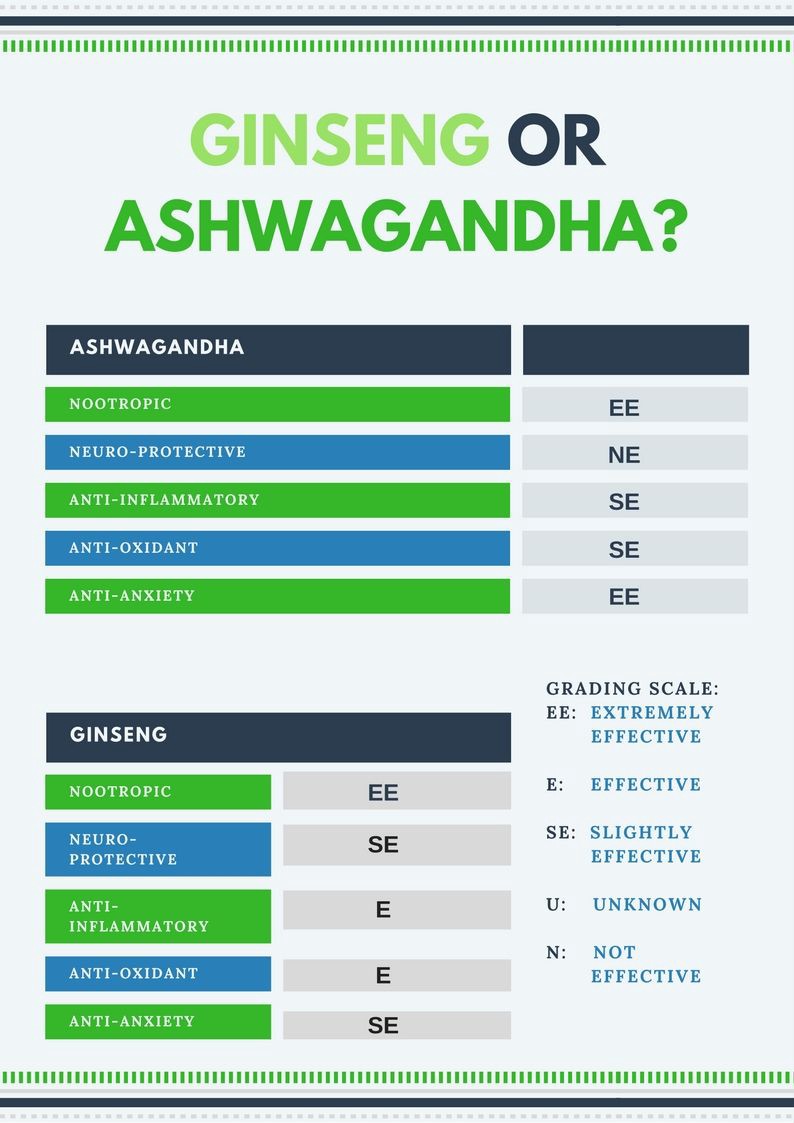
There haven?t been many published studies that show Ginseng as a great anti-anxiety or Neuro-protective agent, but the scientific consensus is strongly in favor of Ginseng?s strength as a nootropic and anti-oxidant.
Ashwagandha on the other hand, once again, takes the prize as a superior anti-anxiety agent and an overall more powerful adaptogen.
Red Ginseng VS White Ginseng Potency
If you want the most potent, anti-oxidant packed Ginseng go for red over white.
Red Ginseng is prepared by steaming raw Ginseng root for over 40 minutes, followed by a period of sun-drying that can last up for 15 days. The Ginsenosides (powerful antioxidant compounds unique to Ginseng) become MUCH more potent during this process; whereas white Ginseng is generally dried then sold.
This study found that, as expected, Red Ginseng is more potent across the board as an antioxidant, and as an anti-inflammatory agent.
Read the rest at herbexaminer.com!
